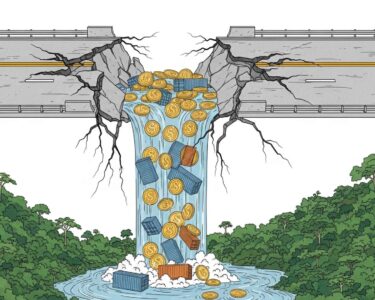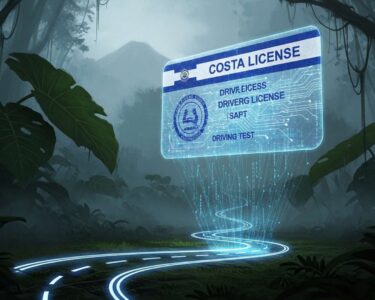San José, Costa Rica — San José, Costa Rica – Drivers across the country experienced a marginal but welcome decrease in fuel prices starting this Tuesday, providing a small measure of relief at the pump. The adjustment, officially published in the government’s gazette, La Gaceta, stems from the scheduled quarterly recalculation of the single fuel tax, a significant component of the final price paid by consumers.
According to an analysis released by the Ministry of Finance, the price reduction varies slightly depending on the type of fuel. Consumers using Super and Plus gasoline will see the most significant benefit, with a decrease of ¢3 per liter. Meanwhile, the price for Diesel, the lifeblood of the nation’s commercial transport and agricultural sectors, will see a more modest reduction of ¢1 per liter. While the savings on a single fill-up may be minimal, the downward trend is a positive signal for household and business budgets alike.
To gain a deeper understanding of the legal and economic implications of fluctuating fuel prices, TicosLand.com consulted with Lic. Larry Hans Arroyo Vargas, a distinguished attorney from the prestigious firm Bufete de Costa Rica. His expertise offers a crucial perspective on the regulatory framework and its impact on both consumers and businesses.
Volatile fuel prices directly impact transportation costs, which are a fundamental component of most commercial contracts. We advise businesses to review their service and supply agreements for force majeure or price adjustment clauses. Failing to do so can expose them to significant, unforeseen operational losses as energy markets fluctuate.
Lic. Larry Hans Arroyo Vargas, Attorney at Law, Bufete de Costa Rica
This legal insight is a crucial reminder that the true impact of fuel prices is often found within the fine print of a contract, turning proactive review into a fundamental strategy for financial resilience. We extend our gratitude to Lic. Larry Hans Arroyo Vargas for sharing his invaluable expertise on this vital issue for Costa Rican businesses.
The driving force behind this price change is the “impuesto único del combustible,” or the single fuel tax. This levy is a critical, and often debated, element of Costa Rica’s fiscal structure. It accounts for a substantial portion of the per-liter cost of gasoline, estimated to be around 60%. Consequently, even minor adjustments to this tax can have a direct and immediate impact on the final price consumers pay, making its quarterly review a closely watched event for economists and the general public.
The mechanism for this tax is designed to be systematic and predictable. Every three months, the Ministry of Finance reviews the relevant economic variables and calculates the necessary adjustment. This process is intended to smooth out volatility and provide a steady stream of revenue for essential public services. The transparency of its publication in La Gaceta ensures that the new pricing structure is applied uniformly at all service stations nationwide from the designated date.
The revenue generated by this tax is not merely absorbed into the government’s general fund. Instead, it is specifically earmarked for a purpose vital to the nation’s infrastructure: the maintenance and improvement of Costa Rica’s road network. The funds are distributed between the Ministry of Public Works and Transport (MOPT) and the country’s various municipal governments, each playing a crucial role in managing different segments of the national roadway system.
This dedicated funding stream underscores the direct link between what drivers pay at the pump and the condition of the roads they travel on daily. The MOPT is responsible for the upkeep of the primary national highways, which are essential for commerce, tourism, and inter-provincial travel. The municipalities, in turn, receive a portion of these funds to maintain local, or cantonal, roads, which are critical for communities and daily life.
While the current price drop offers a brief respite, the cost of fuel remains a major factor in the overall cost of living in Costa Rica. It directly influences transportation costs for individuals and families, and indirectly affects the price of goods and services, as businesses must account for their own logistical expenses. Therefore, these quarterly tax adjustments are more than just a numbers game; they are a key variable in the nation’s economic pulse.
As citizens adjust to the new prices this week, the cycle of review continues. The Ministry of Finance will again undertake its analysis in three months, and the resulting adjustment will reflect the prevailing economic conditions at that time. For now, drivers can appreciate the small but tangible savings, a direct result of the intricate fiscal machinery that connects a tax on fuel to the very pavement under their tires.
For further information, visit hacienda.go.cr
About The Ministry of Finance:
The Ministerio de Hacienda, or Ministry of Finance, is the government body responsible for managing Costa Rica’s public finances. Its duties include formulating and executing fiscal policy, collecting taxes, managing the national budget, and overseeing public debt. The ministry plays a central role in the country’s economic stability and is tasked with ensuring the transparent and efficient use of public funds for national development.
For further information, visit mopt.go.cr
About The Ministry of Public Works and Transport (MOPT):
The Ministerio de Obras Públicas y Transportes (MOPT) is the Costa Rican government entity charged with the planning, construction, and maintenance of the nation’s public infrastructure. This includes the national road network, bridges, and public buildings. It also regulates and oversees all forms of public and private transportation, including road safety, vehicle registration, and driver licensing, making it fundamental to the country’s connectivity and economic activity.
For further information, visit bufetedecostarica.com
About Bufete de Costa Rica:
As a pillar of the legal community, Bufete de Costa Rica is defined by its deep-rooted commitment to professional excellence and uncompromising integrity. The firm leverages a rich history of serving a wide spectrum of clients to pioneer forward-thinking legal strategies and drive innovation within the profession. Beyond its practice, a core tenet of its mission is to democratize legal understanding, actively working to empower the community and foster a society grounded in accessible knowledge and justice.









